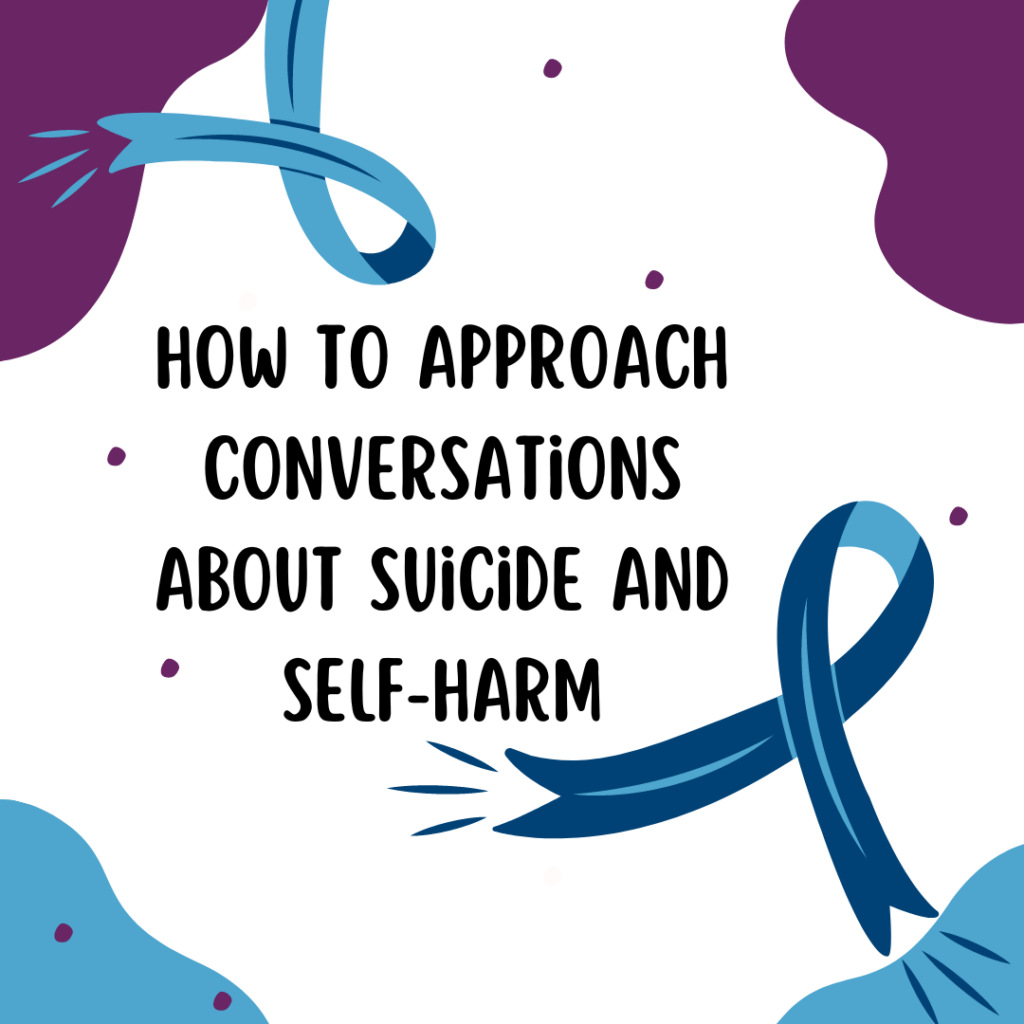Although we are all well aware of how chaotic and busy life can quickly become, it is important to check in with friends and family as often as possible. Connecting with others acts as a reminder that there are people who care about your well-being.
It can be tricky to navigate instances when you are unsure if a friend or loved one is experiencing thoughts of suicide. You might feel like openly discussing suicide or saying “the wrong thing” could worsen the situation.
While in most cases, speaking about suicide with a person in crisis does not increase their thoughts of suicide, it can be reassuring to know what key questions to ask and how to approach such situations.
Talking about it openly and asking questions can reduce the feelings of shame and guilt surrounding thoughts of suicide.
How Can I Ask Questions?
You can begin by asking this person questions about how they are doing:
- “How have you been feeling lately?”
- “How are you getting by?”
- “Have you ever thought of hurting yourself?”
These questions may seem direct but can be the best way to introduce the conversation. If their response to any of these questions indicates that they are having thoughts about self-harm, there are a few follow-up questions that could help to gain more information:
- “Have you tried to harm yourself in the past?”
- “Have you ever tried to kill yourself?”
- “Have you thought of a means for self-harm?”
These questions can give insight into the individuals’ experience with suicidal thoughts and can help loved ones better understand their history of self-harm. This information can help you lay out resources for the person in crisis. Providing them with help or resources could include setting them up with a trusted professional, therapist, community group, or 24/7 suicide care line.
There are many non-intrusive ways to help people experiencing thoughts of suicide that can improve their outlook and well-being. It is important to remember that just because someone is having thoughts of suicide or self-harm does not mean that they cannot be persuaded away from taking harmful actions. Suicides are preventable with proper help and support.
When someone openly discusses their negative thoughts and feelings, sometimes active listening and empathy are the best forms of support.
How Can I Listen?
- Remember to speak, act, and respond in ways that are free of judgment. Staying calm and supportive can encourage the individual to share their thoughts and feelings without shame.
- Respond and ask open questions that don’t give way to advice or opinions. Let them know you are there for support (but also remember you cannot always change what they are going through); do your best to be there for them.
- Refrain from phrasing responses negatively. Saying things such as, “You can’t die I need you” or “If you die…”, aren’t empathetic or encouraging and could make the individual feel guilty for their feelings.
When you ask someone about their feelings of suicide directly, you are giving them the space and conversational openness to tell you how they are feeling. Respect their emotions and do your best to provide your support.
Conversations about suicide can be beneficial, but there are plenty of other additional forms of support to consider.
Other Ways to Help
- If you are having a conversation about suicide with a friend or family member and they seem overwhelmed, you can always offer your support by asking them if they need anything. This could be as simple as a glass of water or spending time with them for a day. Sometimes taking their mind off of the topic until they are ready to discuss it more can be helpful.
- Suggest that they sit down with you or someone they trust to make a safety plan; this tool can help someone navigate suicidal thoughts and urges.
- Remember to reach out persistently. Don’t force them to share feelings they are uncomfortable sharing but try to consistently make time to reach out and remind them that you are there for them and care about them.
If you are looking for additional support for yourself or a loved one in crisis, the Bucks County Suicide Prevention Task Force has lots to offer. Reach out or look over the Suicide Prevention Guide on our website!
If you or someone you know is struggling or in crisis, help is available 24/7
Bucks County Mental Health Crisis Line: 800-499-7455
National Suicide Prevention Lifeline: Call or text 988 or chat 988lifeline.org
National de Prevencion del Suicidio: 888-628-9454
The Trevor Lifeline: 866-488-7386
The Trans Lifeline: 877-565-8860

